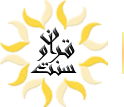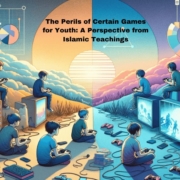Unlocking the Full Understanding of the Quran
The Qur’an is the ultimate source of guidance for Muslims, offering divine wisdom and spiritual direction for all aspects of life. Understanding the complete knowledge of the Quran involves exploring its 114 Surahs, 6,236 verses, and profound teachings that shape faith and daily conduct. It addresses everything from morality and justice to personal and societal values. Gaining a deeper comprehension of its structure such as the division between Makki and Madani Surahs, the significance of Ayat, and Sajdah verses allows one to appreciate its timeless relevance. The Qur’an serves as a beacon of light, leading believers toward righteousness and inner peace.
Muslim’s spiritual and moral development
The understanding of the Quran is the central religious text of Islam, offering guidance for all aspects of life. It serves as a spiritual compass, teaching moral values, justice, and compassion. As the word of Allah, the Qur’an provides solutions to personal, social, and global issues. Its teachings emphasize the oneness of God, the importance of faith, and righteous conduct. The Qur’an is recited in prayers, memorized, and followed by Muslims worldwide. Its timeless wisdom inspires personal growth, promotes peace, and leads to salvation in the hereafter, making it essential for every Muslim’s spiritual and moral development.
Understanding the Quran is essential for Muslims as it serves as the primary source of guidance in their lives. Firstly, the Quran is not just a religious text but a comprehensive guide that addresses all aspects of life, from moral conduct to social justice. Moreover, its teachings encourage deep reflection and contemplation, urging believers to seek knowledge and wisdom.
Here is a detailed breakdown of the Qur’an, including the number of Sajdahs, Rukus, Ayat, Surahs, and the distribution between Makki and Madani Surahs:
Total Number of Surahs (Chapters)
- The Qur’an consists of 114 Surahs (chapters).
Total Number of Ayat (Verses)
- There are a total of 6,236 Ayat (verses) in the Qur’an (without counting the Bismillah at the start of each Surah, except Surah Al-Fatiha).
- If we include Bismillah (In the name of Allah, the Most Merciful, the Most Compassionate), which appears at the start of each Surah (except Surah Al-Tawbah), the number increases to 6,349 Ayat.
Makki and Madani Surahs
- Makki Surahs: Surahs were revealed in Makkah before the migration (Hijrah) to Madinah. They generally focus on Tawhid (oneness of Allah), the Hereafter, and morality.
- Total Makki Surahs: 86 Surahs
- Madani Surahs: Surahs were revealed after the migration to Madinah. These Surahs deal more with Islamic laws, social issues, and the formation of the Muslim community.
- Total Madani Surahs: 28 Surahs
Number of Rukus (Sections)
- The Qur’an has a total of 558 Rukus (sections). Each Ruku marks a thematic or narrative division within a Surah.
Number of Sajdah Tilawah (Prostrations of Recitation)
There are 14 places in the Qur’an where Sajdah (prostration) is required upon recitation. These verses are known as Ayat al-Sajdah and signify deep reverence and submission to Allah.
Here are the locations of the 14 Sajdahs:
- Surah Al-A’raf (7:206)
- Surah Al-Ra’d (13:15)
- Surah Al-Nahl (16:50)
- Surah Al-Isra (17:109)
- Surah Maryam (19:58)
- Surah Al-Hajj (22:18)
- Surah Al-Hajj (22:77) [There is a difference of opinion here, with some scholars considering only 14 Sajdahs, others adding this as a 15th]
- Surah Al-Furqan (25:60)
- Surah Al-Naml (27:26)
- Surah Al-Sajdah (32:15)
- Surah Saad (38:24)
- Surah Fussilat (41:38)
- Surah Al-Najm (53:62)
- Surah Al-Inshiqaq (84:21)
- Surah Al-Alaq (96:19)

Total Number of Juz (Parts)
- The Qur’an is divided into 30 Juz (also called Parahs). These divisions make it easier for Muslims; to recite the Qur’an over a month, especially during Ramadan.
Number of Hizb (Half-Parts)
- Each Juz is divided into two Hizb (half-parts), making a total of 60 Hizbs in the Qur’an.
Longest Surah
- The longest Surah in the Qur’an is Surah Al-Baqarah (Chapter 2), which has 286 verses.
Shortest Surah
- The shortest Surah is Surah Al-Kawthar (Chapter 108), which has 3 verses.
Longest Ayah
- The longest verse in the Qur’an is Ayah 282 of Surah Al-Baqarah, known as Ayat al-Dayn (The Verse of Debt), which outlines rules for financial transactions.
Shortest Ayah
- Some of the shortest Ayat are found in Surah Al-Rahman (Chapter 55), such as “فَبِأَيِّ آلَاءِ رَبِّكُمَا تُكَذِّبَانِ” (55:13).
Opening and Closing Verses
- The first verse of the Qur’an is “بِسْمِ اللَّهِ الرَّحْمَٰنِ الرَّحِيمِ” (In the name of Allah, the Most Merciful, and the Most Compassionate).
- The last verse is “مِنَ الْجِنَّةِ وَالنَّاسِ” (from among jinn and mankind), found in Surah Al-Nas (Chapter 114:6).
Unique Features
- Surah Al-Fatiha (Chapter 1) is often called the “Opening” and is essential in every prayer (Salah).
- Ayat al-Kursi (Surah Al-Baqarah, 2:255) is regarded as one of the most powerful verses in the Qur’an, emphasizing Allah’s greatness and protection.












What a superb work! It is a delight to read your insightful analysis presented in an interesting way. Your use of concrete instances to back up your claims is really appreciated. I appreciate you taking the time to share this helpful information.
This was a very enlightening read, much appreciated!